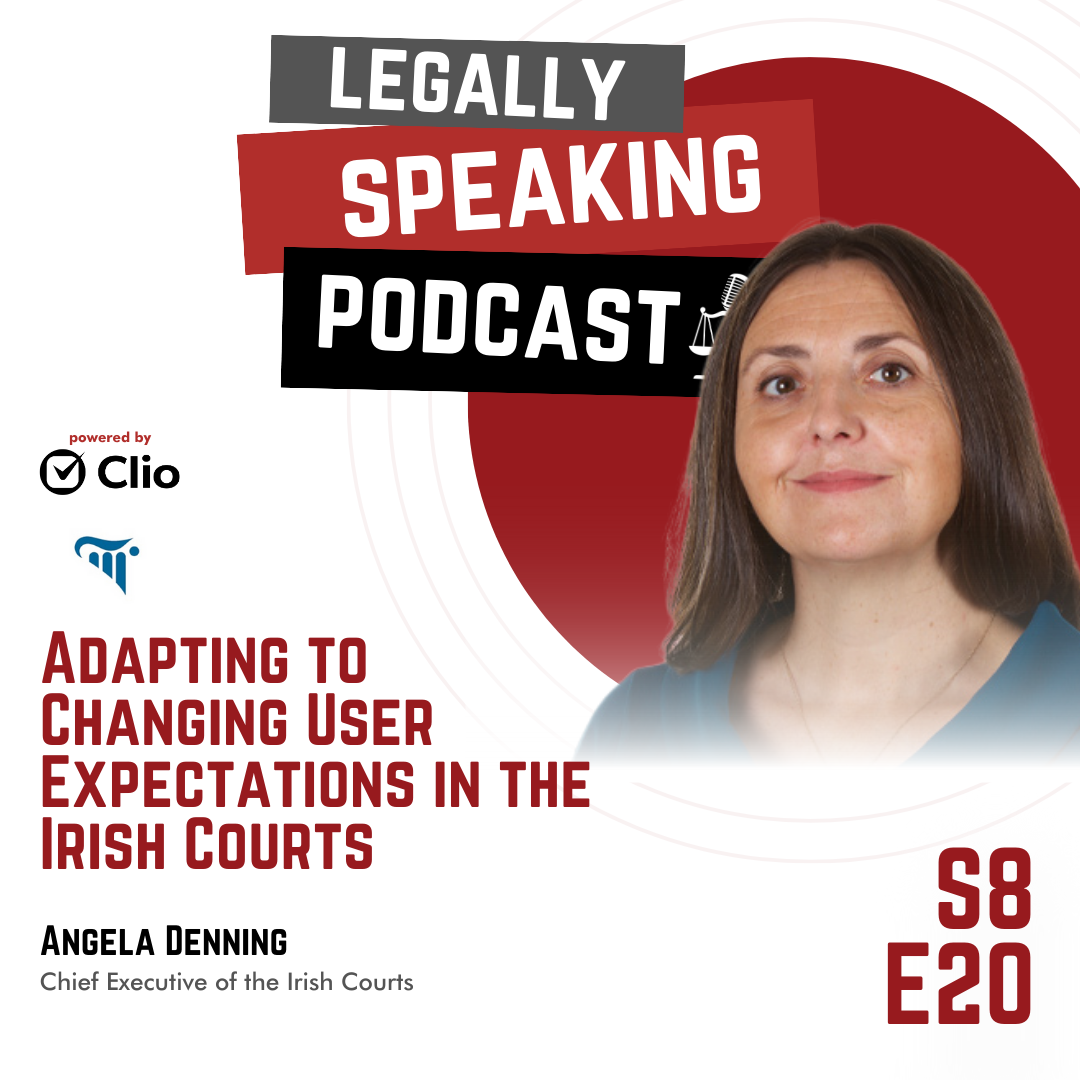
Our Host has joined the Advisory Board of Caseguru!
Congratulations to Our Host, Robert Hanna, on joining the Advisory Board of Caseguru!🌟 Finding a lawyer

Glenn Reid is a legal marketing consultant over at Reid & Partners, offering expert niche advice and services to law firms in the UK and Ireland. This week, he wrote a handy article on social strategy for law firms and happily allowed the Legally Speaking Podcast to share his thoughts on our blog! You can learn more about Glenn and his business over at www.legal-marketing.co.uk!
—
”The legal sector is highly competitive and one of the biggest marketing challenges faced by law firms is differentiating themselves from their competitors. A key and often overlooked way to do this is by implementing a robust social proof strategy. Social proof is very cost-efficient because the building blocks of the strategy are already owned by the law firm. Many just don’t realise it.
What is social proof?
Social proof is what turns your existing clients into a marketing tool. This is a little dehumanising so let’s instead call them law firm brand advocates. It is not uncommon for law firms to ask for feedback, but few use it to its full potential. A social proof strategy does just that.
Why is it so important?
Research suggests that 84% of clients trust online reviews as much as recommendations from close friends and family. That’s a startling figure, but one that demonstrates how digitally embedded our society is. A huge portion of the population is likely to respond positively to your social proof activities.
Breaking down a social proof strategy
Law firms already have access to the most fundamental element of social proof – Past clients. There are two very easy ways to kick start the strategy which happen to be the most impactful. Reviews and case studies.
Reviews
Collecting testimonials has been common practice for law firms for quite some time. Almost all Law Societies in the British Isles recommend it. However, social proof marketing takes it ten steps further. So, let’s reinvent the wheel.
A law firm should identify an independent third-party review collection platform. Google Reviews, Trustpilot and Reviews.io are some examples. They offer various levels of automation and can be embedded directly onto a website so that reviews are displayed in real-time as they are submitted. The savviest law firms will also use these reviews to create graphics that can be posted to their chosen social media platforms.
If a firm advertises using Google Ads, it can also take advantage of the free Ad Extension and seller ratings. Seller ratings are an automated Google Ad extension that attaches the star ratings of a firm to their Google Ads. The stars that appear within the ad are an eye-catching yellow and make ads stand out against competitor ads. This improves the click-through rate and lowers the overall cost per click.
To qualify for Google seller ratings, a law firm needs to have 100 total verified reviews from any trusted source, from the country in which you wish to target Google Ads, with a minimum rating of 3.5 stars, collected over the last 12 months.
Case Studies
Review collection is about quantity over quality. However, balance is key when pursuing business development goals. That’s why law firms should complement their testimonials with something a little more qualitative – case studies.
Case studies are an opportunity for solicitors to demonstrate their capability and how they solve complex problems for clients. The reader will inevitably empathise with the subject client if the case study is particularly well written. Many solicitors struggle with writing compelling case studies because they write in a manner favoured by the judicial system. Unfortunately, this doesn’t always grip a reader’s attention.
Although it’s better to get a client’s permission before publishing a case study, a solicitor doesn’t necessarily have to. A firm can publish a case study and remain GDPR compliant by ensuring they remove any identifiable data such as the client’s name. Replace it with a pseudonym rather than a prefix and initial or just refer to the client as Anon. This paints a more authentic picture for the reader.
Responsible firms will go a step further and change other potentially identifiable details that would ordinarily pass the scrutiny of the ICO. If this anonymous approach is taken, a solicitor should ensure it is made clear that it is an anonymous case study somewhere on their website.
Case studies can be published on a website and act as part of the “sales funnel”. They can also be published on social media and begin to drive more traffic to the website. A case study with a great headline is more likely to be clicked on than any other type of content that a law firm might regularly publish.
Be consistent
The key to success with social proof is consistency. It might start off slow but…
Trust the process
I worked with a Northern Ireland based personal injury law firm that serves a population of just 1.8m people. Despite this, the consistent social proof strategy that I put in place eventually lead to tens of thousands of new website visitors and plenty of new instructions to go with it. In fact, clients regularly claimed that they were swayed by case studies and reviews during their initial consultation. It really does work.
If that wasn’t enough, the firm now has more positive online reviews than almost every other law firm in the UK and Ireland on Trustpilot. It remains consistently within the top 5 highest rated firms on that platform. This is in spite of the fact that the Northern Ireland legal jurisdiction is by far the smallest in the British Isles.
Hopefully, by now you can see the tangible benefit of implementing a social proof strategy and have a sound understanding of how to kickstart your own. If not, don’t worry – I can help. Visit my website to find out how.”

You may also tune in on Google Podcasts, Apple Podcasts, Spotify, or wherever you get your podcasts!
Give us a follow on X, Instagram, LinkedIn, TikTok and Youtube.
Finally, support us with BuyMeACoffee.
🎙 Don’t forget to join our Legally Speaking Club Community where we connect with like-minded people, share resources, and continue the conversation from this episode.
Sponsored by Clio – the #1 legal software for clients, cases, billing and more!
💻 www.legallyspeakingpodcast.com
📧 info@legallyspeakingpodcast.com
Disclaimer: All episodes are recorded at certain moments in time and reflect those moments only.

Congratulations to Our Host, Robert Hanna, on joining the Advisory Board of Caseguru!🌟 Finding a lawyer

Congratulations to Our Sponsor, Clio, on announcing their Series F funding value, that values Clio at

Join us as we take a deep dive into the technical revolution happening in the Irish
Average Range of Salaries *These are paid at the £/$ exchange rate and so are prone

Event Overview:In 2024, the Legally Speaking Podcast and HiveRisk founded a unique law firm leadership strategy
I’m thrilled to share the highlights from our exclusive “LegalTechTalk Uncovered” miniseries. Join me as I

*DISCLAIMER* All episodes are recorded at certain moments in time and reflect those moments only. The podcast does not support or associate itself with any inappropriate behaviour or actions that may have occurred after recording.
Website by Virtual Insanity LLC